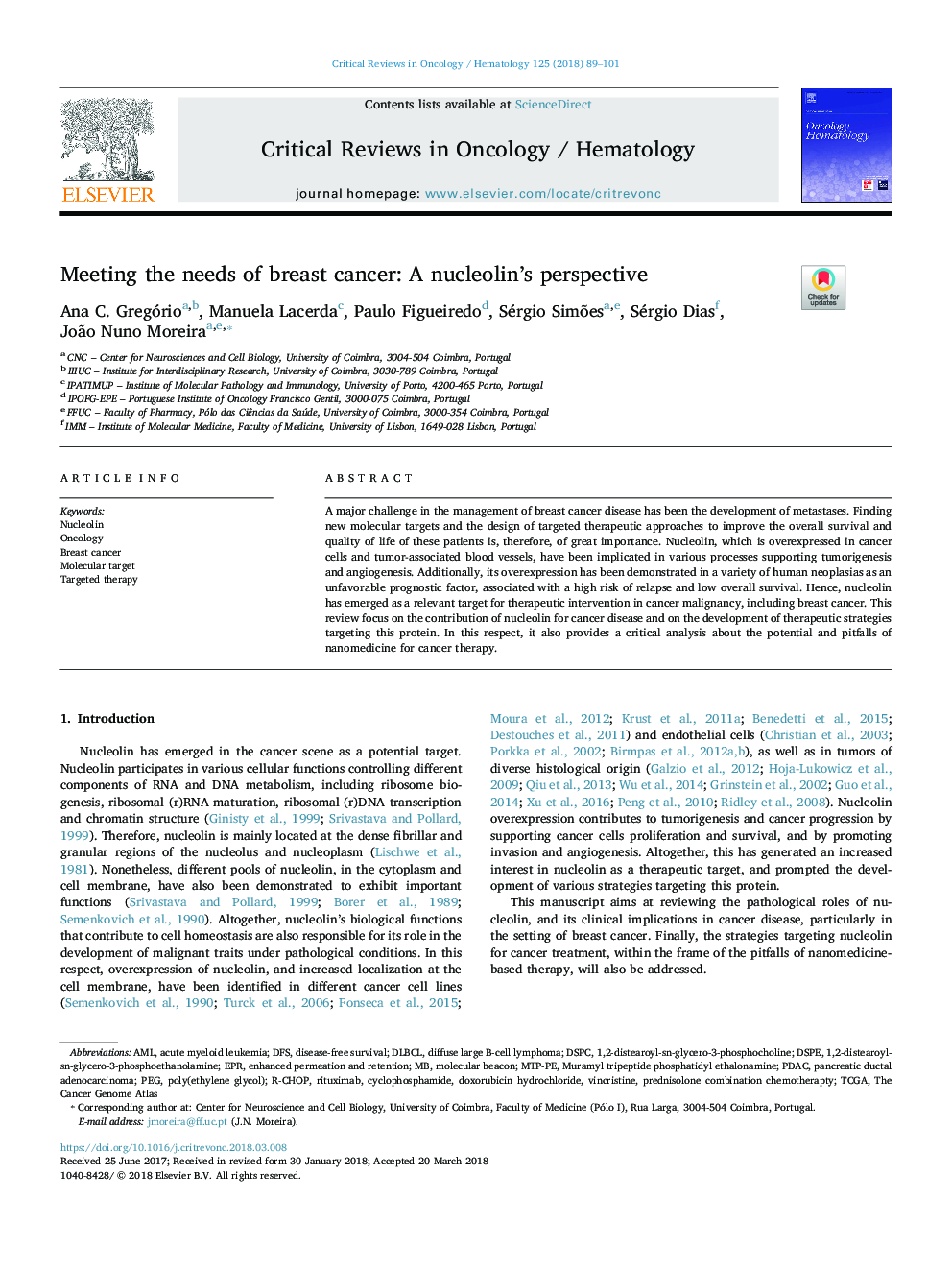| Article ID | Journal | Published Year | Pages | File Type |
|---|---|---|---|---|
| 8733654 | Critical Reviews in Oncology/Hematology | 2018 | 13 Pages |
Abstract
A major challenge in the management of breast cancer disease has been the development of metastases. Finding new molecular targets and the design of targeted therapeutic approaches to improve the overall survival and quality of life of these patients is, therefore, of great importance. Nucleolin, which is overexpressed in cancer cells and tumor-associated blood vessels, have been implicated in various processes supporting tumorigenesis and angiogenesis. Additionally, its overexpression has been demonstrated in a variety of human neoplasias as an unfavorable prognostic factor, associated with a high risk of relapse and low overall survival. Hence, nucleolin has emerged as a relevant target for therapeutic intervention in cancer malignancy, including breast cancer. This review focus on the contribution of nucleolin for cancer disease and on the development of therapeutic strategies targeting this protein. In this respect, it also provides a critical analysis about the potential and pitfalls of nanomedicine for cancer therapy.
Keywords
AMLTCGAR-CHOPDLBCLDSPCDFSDSPE1,2-Distearoyl-sn-glycero-3-phosphoethanolamineMTP-PE1,2-distearoyl-sn-glycero-3-phosphocholinePancreatic ductal adenocarcinomaPDAC یا pancreatic ductal adenocarcinomaenhanced permeation and retentionOncologyThe cancer genome atlasdisease-free survivalEPRTargeted therapyBreast cancerDiffuse large B-cell lymphomaacute myeloid leukemiaNucleolinMolecular targetPoly(ethylene glycol)PEGMolecular beacon
Related Topics
Health Sciences
Medicine and Dentistry
Hematology
Authors
Ana C. Gregório, Manuela Lacerda, Paulo Figueiredo, Sérgio Simões, Sérgio Dias, João Nuno Moreira,
